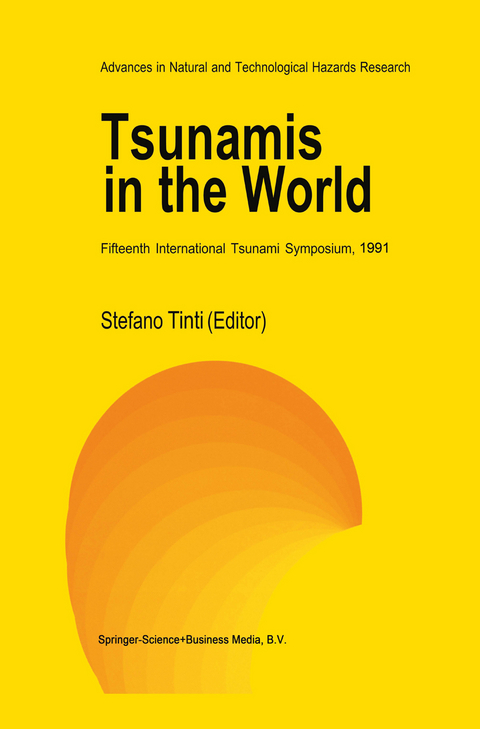
Tsunamis in the World
Springer (Verlag)
978-0-7923-2316-7 (ISBN)
estimate tsunami potential by computing seismic moment. This system holds promise for a new generation of local tsunami warning systems. Shuto (Japan) described his conversion of !ida's definition of tsunami magnitude to local tsunami efforts. For example, i l = 2 would equal 4 m local wave height, which would destroy wooden houses and damage most fishing boats. SimOes (Portugal) reported on a seamount-based seismic system that was located in the tsunami source area for Portugal. In summary, the risk of tsunami hazard appears to be more widespread than the Pacific Ocean Basin. It appears that underwater slumps are an important component in tsunami generation. Finally, new technologies are emerging that would be used in a new generation of tsunami warning systems. These are exciting times for tsunami researchers. OBSERVATIONS TSUNAMI DISPERSION OBSERVED IN THE DEEP OCEAN F. I. GONZALEZl and Ye. A. KULIKOV2 Ipacific Marine Environmental Laboratory, NOAA 7600 Sand Point Way, N. E. , Seattle, W A 98115 USA 2State Oceanographic Institute Kropotkinskey per. 6 Moscow 119034, Russia CIS The amplitude and frequency modulation observed in bottom pressure records of the 6 March 1988 Alaskan Bight tsunami are shown to be due to dispersion as predicted by linear wave theory. The simple wave model developed for comparison with the data is also consistent with an important qualitative feature of the sea floor displacement pattern which is predicted by a seismic fault plane deformation model, i. e. the existence of a western-subsidence/eastern-uplift dipole.
A Summary of the Fifteenth International Tsunami Symposium.- Tsunami Dispersion Observed in the Deep Ocean.- Historical Tsunami Database for the Kuril-Kamchatka Region.- Tsunamis in the Norwegian Sea and North Sea caused by the Storegga Submarine Landslides.- Tsunamis related to Volcanic Activity in Italy.- Historical Tsunamis in Mainland Portugal and Azores. Case Histories.- An Analytical Model of Tsunamis Generated by Earthquakes.- Analysis of the OBS Data and Numerical Simulation for the 1990 Mariana Earthquake Tsunami.- On Tsunami Resonance of the Gulf of California.- Experiment of Oblique Reflection of Solitary Wave.- Dynamic Response of Structures to Tsunami Attack.- Evaluation of Tsunami Hazard in Calabria and Eastern Sicily, Italy.- Crack Propagations, Earthquakes and Tsunamis in the Vicinity of Anatolia.- An Integrated System for Real Time Estimation of Seismic Source Parameters and Its Application to Tsunami Warning.- Tsunami Intensity and Disasters.- Complementary Land-Based Tsunami Warning System in SW Portugal.
| Erscheint lt. Verlag | 31.7.1993 |
|---|---|
| Reihe/Serie | Advances in Natural and Technological Hazards Research ; 1 |
| Zusatzinfo | VI, 230 p. |
| Verlagsort | Dordrecht |
| Sprache | englisch |
| Maße | 156 x 234 mm |
| Themenwelt | Naturwissenschaften ► Biologie ► Ökologie / Naturschutz |
| Naturwissenschaften ► Geowissenschaften ► Geologie | |
| Naturwissenschaften ► Geowissenschaften ► Geophysik | |
| Naturwissenschaften ► Geowissenschaften ► Hydrologie / Ozeanografie | |
| ISBN-10 | 0-7923-2316-5 / 0792323165 |
| ISBN-13 | 978-0-7923-2316-7 / 9780792323167 |
| Zustand | Neuware |
| Haben Sie eine Frage zum Produkt? |
aus dem Bereich


